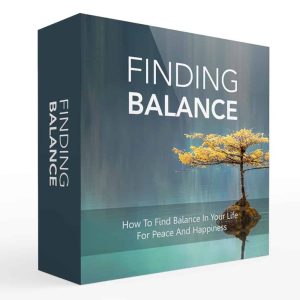Regardless of the type of insomnia, the causes are the same. The difference lies in the intensity of emotions a person experiences for a set amount of time. Besides that, underlying medical conditions can also cause insomnia. Fortunately, insomnia is treatable in most cases.
These medical conditions can be either severe or mild, inducing insomnia to occur at a different point in a person’s life. These symptoms include nasal allergies, sinus allergies, lower back pain, overall chronic pain, gastrointestinal problems, arthritis, asthma, and other neurological problems.
The stress on the patient’s body will cause the mind to stay awake for a longer period of time. For instance, those who catch a cold will realize that they are staying awake for the majority of the night, or they might find themselves waking up frequently. Both of these factors can result in a person having a severe lack of sleep and rest. They might try to relax while having a cold, but insomnia will prevail.
Physical pain can also cause insomnia, as the body cannot get into a comfortable position to rest.
Sleepless nights
Have you ever experienced sleepless nights because you’re unable to get into a comfortable position? This situation is typical when you experience any pain in your body. The best way to fall asleep and stay asleep fast is to get your body in a comfortable position in bed. It will also aid in healing and ensure more productive sleep. Otherwise, you’ll find yourself in a constant battle to fall asleep and even opt for unnecessary medication if you can’t get into your best sleeping posture.
With all of these different causes in mind, we can now move on to the cure. But it’s just as important to study all the factors that cause insomnia. But did you know that there are also risk factors for insomnia? If you find some of these risks apply to you, then you simply have a higher chance of having insomnia at some point in your life. Otherwise, pay attention to your health and sleep habits to make sure that you’re insomnia-free for the rest of your life.
The risk factors of insomnia
The risk factors for insomnia include being female, being pregnant or in the period of menopause, adults above the age of forty, suffering from more stress, suffering from depression, having a nighttime job, traveling long distances where there is a time change, or having a family history of insomnia. All of these factors lead a person closer to insomnia. But do you realize that most of these risk factors are the results of your choices? In most cases, people think that they have little to no choice in life, which is not true.
They can choose to take a longer vacation when they are moving through different time zones, but they didn’t. They can go for a day job, but they decided to go through the hard times of having a job at night and adapt to an entirely different lifestyle.
It is hard to deal with the risk factors of insomnia, but ultimately, it all depends on your choices. Sometimes, you may go through tough times in life. It can be relationship problems, family problems, or job problems. Not only that, you might be suffering from financial or personal problems where you are having trouble balancing your professional and personal lives.
Stress and depression
All these will beat you up and keep you up at night until most of the stress or depression is gone. In some cases, it might take longer. In other cases, people can find solutions and get through tough times rather quickly. Either way, having the right mindset is the cure to emotion-induced insomnia.
Since insomnia has many different causes and risk factors, there are many different things that you can do to prevent yourself from having more sleepless and restless nights. Most of the time, it’s easy to find out what the causes are, but the real challenge is how to overcome them and have a good night’s sleep. Life can be difficult, and sometimes it can beat a person down to the point where he’s not even sure if he can get back up.
The Brain of an insomniac
Researchers all around the world are putting their minds together to figure out how the brain of an insomniac works. They continue to look at the features of all the brainwaves and how the thoughts interact during the day and night.
How the mind works
During every hour of the day, the mind is able to adapt itself to any new situation. Whether you’re trying to get food, get a drink, get out of the car, walk through a door, or just get some rest, the mind will constantly try to find new ways to survive and flourish. It will continue through the cycle of getting enough resources during the day and having enough energy to heal and rest during the night.
Normally, people with a healthy level of brainwaves and satisfactory cognitive stability during the day are able to shut down parts of the brain’s thought process during the night. As the night falls deeper, the brain will begin to slow down and initiate sleep. Your alertness and focus typically decrease when it’s nighttime. This is the reason why a person finds it harder to complete any tasks at night.
Studies show that the process of the mind will naturally change throughout the day, and sometimes it will cause a major form of anxiety. It is when the brainwaves become erratic and refuse to slow down due to an immense amount of stress during the day. Therefore, the mind will not be able to relax completely at night. Instead, it will go through a period where the brainwaves will move unusually fast, causing more thoughts and consuming more energy in the evening. Everything that a person has been through during the day will be remembered at night. The body will then run through twice the amount of energy and resources to process the thoughts, and this causes fatigue and a lack of energy the following day.
The mind and the brainwaves
As for the mind and how the brainwaves respond to the phases of insomnia, there are three different studies to show how the brain reacts during the night. It has been proven that the brain’s learning and memory processing functions affect a person’s sleep. The more you learn during the day, the more thoughts and memories will be processed by the brain during the night. Dreams come from one’s thoughts and real-life experiences. The more you experience in life, the more you dream at night. The ability to have a larger variety of dreams allows the mind to calm down and form vague images to reinforce your memory. When you fall into deep slumber, you tend to be in your dream state. Sometimes, you might even have nightmares. But it all boils down to your subconscious thoughts and the kind of experience you had.
Day vs. Night
So what’s happening in the brains of insomniacs? Firstly, their brain is more active during the night and has difficulty getting to a calm and relaxed state. In one of the studies on the brainwaves during insomnia, scientists have proven that the neurons of the insomniacs’ brains are more active at night.
Insomniacs tend to have a lot of thoughts going through their heads, which results in insomnia. They’re experiencing a constant state of information processing throughout the entire day without the ability to put a stop to it. Ultimately, they’ll have insomnia and face the consequences of not getting enough rest. Experts claim that insomnia should not be seen directly as a nighttime disorder. In fact, it’s more of a 24-hour brain condition that causes the brain to remain active throughout the day.
Conclusion
Sleep plays a major role in processing and storing memories. Lack of sleep will interfere with your memory in the long run. You’ll have trouble concentrating, remembering facts, and even minor details. This theory was tested out with a group of students on a short test. One group had a full night’s sleep, whereas another group didn’t have any sleep the night before. The results? Students who had more sleep were able to focus more, and they were able to recall their answers to the test a few hours later. The group of students who didn’t have enough sleep struggled with the test, scored below average, and could hardly recall the answers they wrote an hour after the test!

















